Business Continuity Management Systems




At their core, artificial systems are a series of relationships between intelligence, truth, and decision making.

Feeding the name of a new criminal to the online OSINT community is like waving a red rag to a bull. There’s an immediate scramble to be the first to find every piece of information out there on the target, and present it back in a nice network graph (bonus points if you’re using your own network graph product and the whole thing is a thinly veiled advert for why your Ghunt code wrap with its purple-backlit-round-edged-dynamic-element CSS is better than everyone else’s).

There is a tendency to think that modern problems require modern solutions. Got a problem with AI-generated content? Your only hope is to build an AI-powered detection engine.

Ever notice how your favourite social media platform is like a pizza you’ve ordered? By the time its delivered, it’s soggy, cold, and missing half the toppings you’ve asked for.

I am firmly of the opinion that if Google had fired all their feature developers around 2013 then their 2024 offering would be far superior to the unfortunate guff it has become today.

Tuesday night saw the celebration of a major political event, a commemoration of political stability and continuity: Guy Fawkes Night.

In the mid-20th century, Gilbert Ryle threw sand in the eye of Cartesian dualism, calling the idea of a separate mind a 'category mistake' and dubbing it the 'ghost in the machine'—essentially suggesting that Descartes had outed himself as harbouring an imaginary friend.

Everything that I have learned about the US elections this year has been against my will. Don't get me wrong, I am well aware that whoever controls the White House has significant impact around the world, and I will admit that keeping up with American politics makes me a better analyst.

I don’t think many people have escaped the devastating news about the recent hurricanes that have hit the US in recent weeks.

For a long time we’ve worked on the assumption that once something is on the internet, it’s there forever.
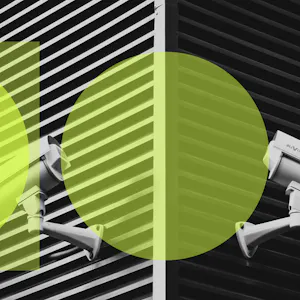
I remember when I studied the susceptibility to committing crime in my Crime Studies post-grad. According to research, many factors, ranging from cognitive biases, emotional vulnerabilities, to social environments, influence a person’s likelihood of committing a crime.

Last week, my social media feeds were filled with news of Israel's synchronised attacks in Lebanon, ranging from news updates and victim testimonies to Hezbollah memes and edgy tankie shitposting.

“As Gregor Samsa awoke one morning from uneasy dreams he found himself transformed in his bed into a gigantic insect”, is how Franz Kafka opens his absurdist short story The Metamorphosis.
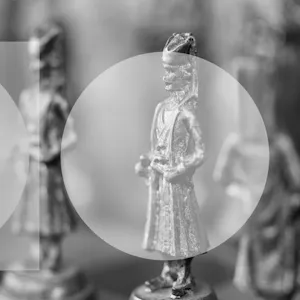
Good things come in threes, unless you’re Mali, Burkina Faso, and Niger, enjoying successive coups in 2021, 2022, and 2023 respectively.

While my experience of parenting has been limited to trying to ‘school’ my younger siblings (classic older child behaviour), I have recently started thinking about how we should explain digital threats to children and the next generation – i.

In 1858, The New York Times called the telegraph (the thingy that sends individual telegrams) “trivial and paltry”, and also “superficial, sudden, unsifted, too fast for the truth”.

"If I had a nickel for every time an Autonomy billionaire sued by HP has died in a mysterious circumstance in the last week, I’d have two nickels which isn’t a lot, but it’s weird that it’s happened twice…" says one Tweeter trying to make a somewhat insensitive joke tweet about a recent tragedy, “OR IS IT” chimes in @GaryQCh3mTra1ls911 who is tweeting from a porch in the middle of the Nevada desert, wearing a tinfoil hat, looking up at the plane flying overhead thinking that the thin white streak coming out the back of it is capturing the minds of innocent citizens to be controlled by the World Economic Forum.

‘Perception Hacking’ is a cool concept. If I want to reduce trust in institutional integrity—during an election for example—I have two options: One, I can spend some serious cash, run some sophisticated campaigns, and slowly but surely push people towards distrust.

Fachwissenfrustheißeluftzorn - a German compound noun for the anger you feel when you see crap hot takes on a slightly niche topic that you know quite a lot about.

The 2024 Paris Olympics are in full swing, and fans (like yours truly) are eager to enjoy this year's Games in the City of Lights.

As I waited for my flight to be rescheduled during last week’s IT outage, I listened to fellow passengers wonder aloud how a company whose name has never hit their radar could have such an impact on such a spectrum of day-to-day matters.
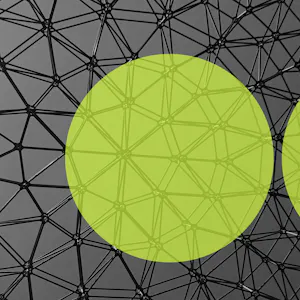
If you don’t know who Nara Smith is, I’m sorry to say you may just be living under a rock. Nara Smith has simply taken over my Instagram and TikTok feed with her ‘what I cooked for my husband today’, ‘what my toddlers ate today’ or my favourite video format, ‘my husband was craving [insert insane request] so I made it from scratch’.

On Sunday, England will take on Spain in the final of the 2024 European Championship in Berlin; the culmination of a month-long party of football.

To avoid contributing to the flood of election takes that will undoubtably come today in the UK, I want to move far away.

With the summer solstice behind us, we have officially entered hot election summer. Mexico, the European Parliament, Belgium, Bulgaria, France, the United Kingdom, Rwanda, one after the other.

This week, I've had the pleasure of attending the Terrorism and Social Media conference in Swansea; meeting and engaging with over 200 of the world’s foremost extremism and counter terrorism researchers and practitioners.

This week, Dr Anthony Fauci, the former Chief Medical Advisor to President Biden during the COVID-19 pandemic, gave testimony in front of a Congressional subcommittee.

Google’s new AI product, AI Overviews, defines 'ensh*ttification' as a 2006 Action/Thriller in which Jason Statham has to take a laxative every 12 hours otherwise his colon stops and he dies - because it’s not just a bad feature so much as a Machiavellian digital poltergeist actively trying to be as problematic as possible.

I must confess that I am an avid follower of TikTok drama, especially when it involves politically or societally sensitive issues.
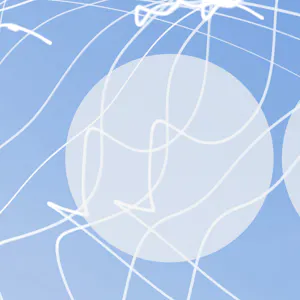
Cultural appropriation is defined as when 'members of a majority group adopt cultural elements of a minority group'.

India is currently in the middle of its 44-day general election, which is divided into seven phases and ends on 1 June.

Last week, Bellingcat released their ‘Seven Deadly Sins of Bad Open Source Research’. The article lays out the glaring errors they’ve observed by practitioners online, especially regarding the conflicts in Gaza and Ukraine.

April 2024 marks the 40th anniversary of the Diretas Já civil movement in Brazil, a mass movement demanding direct presidential elections and a return to democracy after two decades of military dictatorship.
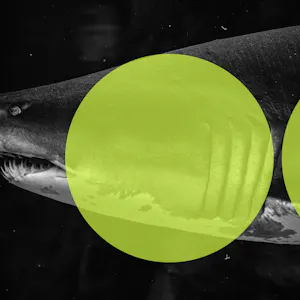
Last week, British comedian, Joe Lycett revealed he had successfully seeded four fake stories within the British press.

On 1 April 2024, the UN Office of the Secretary-General's Envoy on Technology published the zero draft of the Global Digital Compact (GDC).

As we approach Mental Health Awareness Month, it is paramount that, as digital investigators, we reflect on how information environments can be conducive spaces for constructive conversations around mental health and hygiene.

Cost imposition—the idea that you try and make life as difficult as you can for your adversary—is common across cyber security, counterespionage, and increasingly considered in the detection and mitigation of influence operations.

According to the Oxford Institute of Population Ageing (because of course there’s an Oxford Institute of Population Ageing), 70% of voters in the 2019 European Union parliamentary elections were 40 years old or above.

I would need more than ten fingers to count the number of times I’ve personally concluded a digest by explaining that online threats such as disinformation and conspiracy need offline solutions; mainly through policies that better educate the public in digital resilience.

I’m always curious about who starts conspiracy theories. Is it just one random person in their dark room on a computer with a light bulb moment and the power of the internet? How does it catch on? And are we all just engineered to speculate? The latest conspiracy theory to rock our world is around the House of Windsor, and more specifically – Kate Middleton and the conspiracy theories over her health on social media.

To most people, online influence operations involve competing ideologies battling it out in the public sphere.
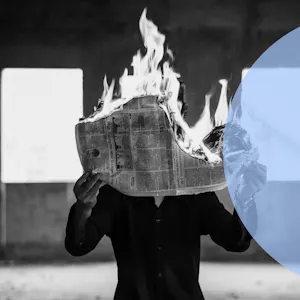
Last week, Russian President Vladimir Putin complained that former Fox News anchor Tucker Carlson had been too soft; saying Carlson avoided “sharp questions” during their interview on 06 February.

Over the past few weeks, thousands of farmers across Europe have taken to the streets to voice their anger over government policies which they claim are destroying agriculture and making the industry nonviable.

Taylor Swift is the latest target of a far-right conspiracy theory that claims her and NFL boyfriend, Travis Kelce, are part of a ‘psyop’ (psychological operation).

Metricising harm often boils down to looking at two things: intent and capability. What is your threat actor trying to do, and how good are they at doing it.

The other day, my friends and I were discussing how truly difficult it is to stay anonymous online. As digital investigators who rely on open-source intelligence to gain information, we’ve come to realise how much of our personal lives are floating around for anyone to come find.

The concept of cost imposition sits at the core of plenty a cybersecurity strategy. The idea is that you make life as operationally, financially, or existentially difficult for your adversary as you can.

Open-source intelligence (OSINT) has always been a precarious concept: gathering freely accessible data from open sources, often using free or inexpensive tools.

For our last digest, my colleague wrote about how difficult it is for digital investigations analysts and OSINT researchers to ‘switch off’ during the holidays, especially knowing that there’s no similar break for online threat actors.

Happy Holidays everyone – I’m sure all of us are ready to check out or have already, so you probably won’t read this, but for those still chugging along, this one’s for you.

Being a huge Julia Roberts fan, I recently watched her new film, ‘Leave The World Behind’. The movie follows a family who go on a last-minute vacation to get out of New York.

If, like me, you still can’t escape The Platform Formerly Known as Twitter you may have noticed the roll out of ‘Community Notes’.
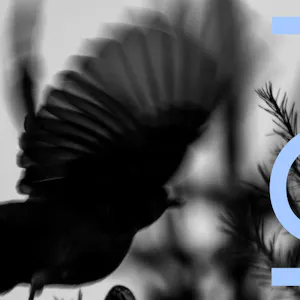
In one of the latest Digital Threat Digests, my colleague urged readers to rethink the way we approach digital investigations to catch up with threat actors.

The most serious argument I’ve ever had with a very good friend came when they challenged me to a game of Crash Team Racing, a spinoff from the Crash Bandicoot universe in which you race characters in go-karts.
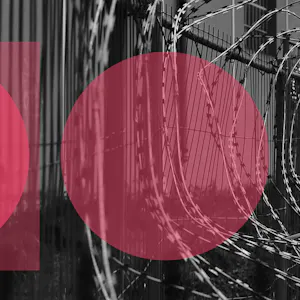
On 02 December, a 7. 6 magnitude earthquake struck the Philippines; and almost immediately after, my X (formerly Twitter) feed was filled with posts about it.

Amid the ongoing war in Sudan, positive news is hard to come by. The Economist has labelled the situation in Sudan as the ‘forgotten war’ with the international community focused on other regions.

If you’re anything like me, you’re excited for the upcoming 2024 Olympic Games held in Paris, especially since the last Games in 2021 were largely restricted due to the pandemic.
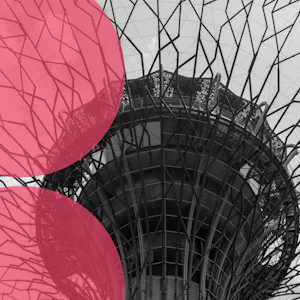
The tech world is currently dominated by headlines around OpenAI’s dramatic leadership challenges that have taken place over the last week.

Over the past few months, I have been closely monitoring the Argentine elections. On Sunday, voters decidedly chose to elect radical libertarian and political outsider Javier Milei as Argentina’s thirteenth president since the country’s transition to democracy.

Last week, world-renowned camera company, Leica announced the release of its first ‘Encryption Verification’ camera with content credentials built in.

This weekend a digitally generated audio of London Mayor Sadiq Khan circulated online. The ‘deepfake’ Khan makes dismissive comments about Remembrance weekend commemorations and calls for a ‘million-man’ march in support of Palestine.

In a recent article, Le Monde outlined how Moldovan individuals with links to Russian pseudo-media outlets are reportedly responsible for the Star of David graffiti that has been cropping up in Paris, amid the war in Gaza.

Don’t worry, this isn’t going to be about International Relations theory because I had those lectures at 9am on Fridays in 2014.

If you’ve been keeping up with the latest AI developments, you’ve probably heard of a fairly new chatbot service called ‘Character.

Anyone that knows me well enough will know that I am a MASSIVE fan of Friends – its not a unique thing, actually probably quite basic but just to say that I was truly saddened by the death of Matthew Perry over the weekend.

On Sunday, I came across an article in the Financial Times discussing the impact of the Israel-Palestine conflict on the war in Ukraine.

A couple of days ago, the New York Times published an article about the encryption ramifications of “Q-day”, which is shorthand for the day quantum computers become more powerful than traditional ones.

Responsibility for the tragedy at the al-Ahli hospital in Gaza remains unclear. Over the past day or so, mainstream news publications have analysed open-source data but have been unable to judge conclusively whether Palestinian militants or the Israeli Defence Forces (IDF) are to blame.

It has only been in the past year or so that I have heard ‘burnout’ and ‘fatigue’ used in reference to social media, information and the news.

I recently came back from a trip to northern France where I enjoyed la belle vie – watching rugby, eating good food, and drinking wine.
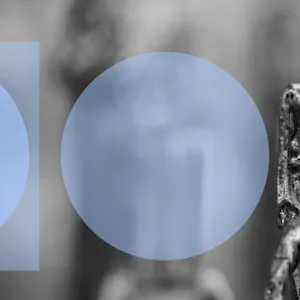
In Italian slang, people often say that God forgives but your mother does not. Tough love aside, as an atheist, I often find myself wondering if God really does forgive, especially in the digital age, where forgetting has become almost impossible.

On 13 January 2024, Taiwan will hold its presidential elections to select its new leadership. The unification versus independence issue continues to be the main point of contention, particularly during these upcoming elections.

On Saturday, Liverpool played Tottenham in the English Premier League. The game saw one of biggest errors of the televised sporting era, in which a goal from Luis Diaz was wrongly disallowed despite the support of technology and the Video Assistant Referee (VAR).

On 26 September, Semafor published a lengthy article written by Jay Solomon claiming that a series of Iranian-American analysts and advisors to the Biden administration had been compromised as part of a long-running Iranian influence operation.

These days, there seems to be a variety of digital technologies on the horizon that are poised to disrupt the way we live our everyday lives.

On Saturday night, Channel 4’s Dispatches aired an investigation into Russell Brand, presenting allegations of sexual and emotional abuse towards multiple women between 2006 and 2013.

The other day, I came across this article from the Guardian on the use of AI translation in asylum applications.

In a manner horrifyingly reminiscent of March 2020, my week started with discourse on Covid-19, specifically of new variants.

I’ve noticed I’ve been consuming increasing amounts of breaking news content from accounts named ‘Pop Crave’ and ‘Pop Base’.

The potential of AI-generated disinformation and influence operations is picking up fast. An anonymous software engineer called ‘Neapaw’ recently showcased ‘CounterCloud’, a Large Language Model (LLM) project designed to automate a pro-US, anti-Russia, pro-Biden, anti-Trump influence operation in its entirety.

Media, politics, debate, and general human interaction increasingly revolve around ‘gotcha’ moments. The desperate and infinite pursuit of being able to catch out the person who disagreed with you online and parade them in front of the digital crowd as a stupid dumb idiot.

When it comes to research in the digital threat space, it's often the reports focusing on Western targets that are afforded the limelight (we are a Western country after all): Russian influence in the US 2016 election, Chinese bot farms fanning the political flames of the 2020 Black Lives Matter movement, Iran's 'PressTV' operation in the UK.

With wars no longer just fought on the ground but online, traditional peacemaking and mediation tactics have had to shift.

As a dedicated Latin Americanist, I was naturally following Ecuador’s snap presidential election on Sunday – triggered two years ahead of schedule by President Guillermo Lasso to avoid impeachment proceedings.

When it comes to regulating something at an international level, navigating the geopolitical interests of different states is a difficult task.

Today is India's 77th Independence Day. Growing up, the day always felt joyful – characterised by kite flying, flag hoisting and the celebration of our collective azaadi (freedom) as a people.

On 8 August, Ohio voters rejected a Republican-backed referendum ballot known as Issue 1. Had it passed it would have changed the Ohio State Constitution to require 60% approval for any constitutional amendment, as opposed to a simple majority.

Recently, I’ve been reading about Worldcoin, an initiative co-founded by OpenAI chief executive Sam Altman.

Capitalism has destroyed the internet, and the decentralisation of debate was a mistake. I’ve subscribed to my fair share of platforms and apps over the last 15 years, but the only two I’ve ever paid money for were OSRS and PokémonGo.

Almost a year and a half after it started, the war still rages on between Russia and Ukraine. Russia continues to spread disinformation about its need to eradicate Nazism in Ukraine, target NATO and advocate for an ‘anti-Western’ ideology.

In March, we wrote a digest on the uptick of xenophobic rhetoric centred on the perceived increase of sub-Saharan migration in Tunisia and the ‘secret’ project to change Tunisia’s demographic that was first inspired by the once relatively unknown Tunisian National Party and amplified by no other than President Kais Saied himself.

I’m sure that I don’t need to provide context for this digest, but yesterday I found out that one of my colleagues had no idea what the Barbie movie was, so just in case you missed it as well - two of the biggest films of the year, Oppenheimer (a biopic about Robert Oppenheimer, the creation and use of the atomic bomb) and Barbie (a hard-hitting piece of cinematic mastery about the complex lives of plastic dolls) were released last Friday.

A few days ago, the official TikTok account of the Presidency of Colombia posted a video in celebration of the 20 July Independence Day.

After the public release of ChatGPT, it has been hard to avoid the explosion of promises around the potential uses of AI.

Over the past week, I’ve been focused on the concept of digital regulation – largely inspired by the Indian government's new Digital India Bill.

Last week Meta debuted their new platform Threads, designed to compete with Twitter. Since its launch, over 100 million users have signed up making it the fastest growing app – even overtaking ChatGPT.

Today world events play out twice; first as real-world tragedies and then as online farces. These processes occur at the same time, with one reinforcing the other.

The thing that interests me the most about the Dune universe is its depiction of a world which has banned, destroyed, and evolved beyond technology that can think for humans.

Last week, my colleague wrote a piece about the illusion of choice – how everything that hits our Netflix and Amazon Prime follows the same basic structure, even if the main characters and settings change.

The last time I wrote about the conflict in Sudan it had been twelve days since the fighting had begun, today it is just over two months since it started – 73 days to be exact.

As much of the Netflix account-owning world, I spent the last week watching the new series of Black Mirror.

The hyperfocus on AI continues to generate an incredible number of predictions around its future uses, for good and for ill.

The gig seems to be up for Boris Johnson and Donald Trump. Both men have been politically sidelined for a while now, but with Johnson about to found guilty of lying to the Commons and Trump facing potential jail time for mishandling classified documents, it is looking unlikely that the Teflon Bros.

It was been difficult to miss media coverage on last Wednesday’s apocalyptic scenes in New York. The whole city was engulfed in a dystopian, eerie orange smog because of wildfires in Canada.

Indian social media is currently abuzz with talk around the film ‘The Kerala Story’, which was released last month.

Much as Apple managed to do some serious damage to the phone market post-2007, so the AR/VR/XR wars have begun as of June 2023.

Like the rest of the UK, I spent the bank holiday Monday outside, having a barbecue, stubbornly refusing to put on sunscreen.

Over the past few weeks, I’ve become more and more convinced that the US presidential election next year is going to come down to a battle of cultures, rather than politics.

Someone told me recently that they can tell which of these entries I write. I think this can be interpreted in both a positive and a negative way.
